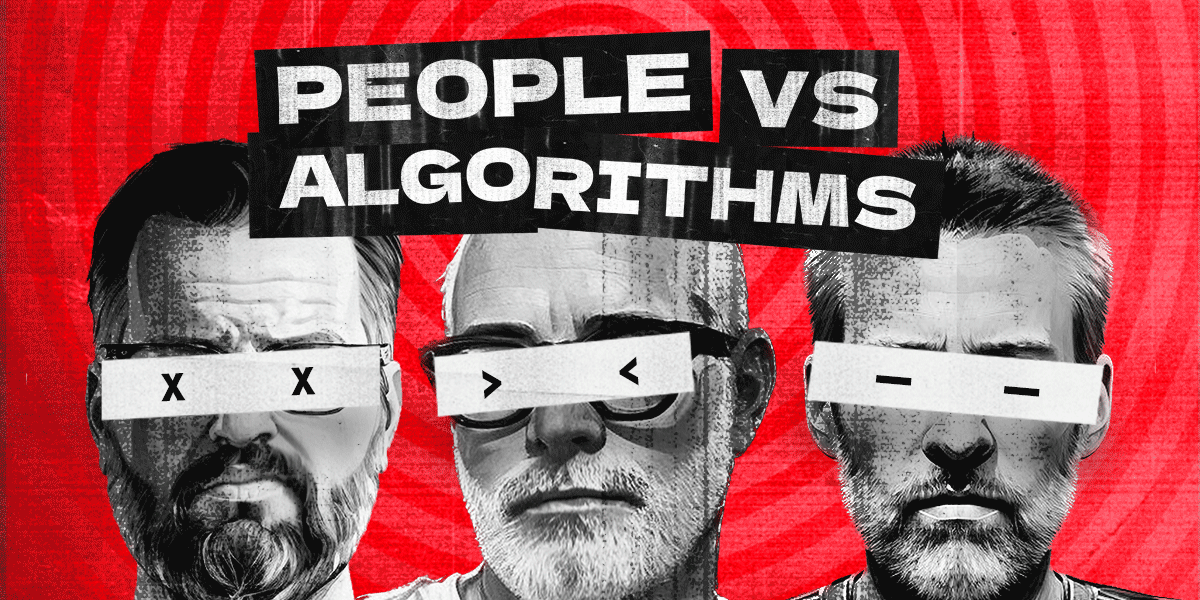Notes from London

I’m wrapping up a week in London, where I met lots of people and fell prey to a pickpocketer. I will say I appreciate European phone thieves for their dedication to their craft. It takes a certain skill level to remove a phone from someone’s coat pocket or time a snatching right on a bike. Apparently, a phone is stolen in London every six minutes. Some additional thoughts on the week here below. First, a message from EX.CO.

The quintessential blueprint for publishers

Designing a video monetization strategy can be overwhelming but the experts at EX.CO have put together this blueprint to simplify your path to video success. “The Publisher’s Blueprint to Achieving Successful Video Monetization at Scale” includes simple steps guaranteed to maximize your video monetization, including the necessary materials and techniques you’ll need to assemble your program and grow. Read now.

On this week’s People vs Algorithms, we dig into the future for magazines as branded storefronts for other, more lucrative businesses. Also, Jonathan Nelson, architect of Omnicom’s digital strategy, joins us to discuss how ad agencies are viewing the coming AI wave.
It’s telling to me that Omnicom paid $835 million to buy Flywheel Digital from Ascential last October. I can remember when the massive ad holding company deals were for other agencies. Flywheel isn’t that. Flywheel is software used for digital commerce. This is part of a recurring theme: Advertising is giving way to commerce as the core monetization method for digital media.
Listen to the episode on Apple | Spotify | other podcast platforms
Notes from London
Stationers Hall, near St. Paul’s Cathedral, is a good counterpoint to the scene at the Fontainebleau during Possible. It was built in 1403 for the Stationers guild, a collection of “text writers and illuminators of manuscript books, booksellers, bookbinders and suppliers of parchment, pens and paper.” Ideal place for my friends at Glide and Press-Gazette to gather a group of publishers around the table to discuss what generative AI is to bring next. More on that in a bit. Things I’ve picked up in my week in London.
Podcasts matter. The podcast industry is hot and cold. It’s now entering a chilly period, as disappointment again sits in that growing podcasts remains very difficult. The power law of podcasting is particularly extreme. Yet podcasts remain important. More of than not, there’s a feeling of familiarity. I can’t see how in the age of AI that type of human connection doesn’t become even more important. Particular thanks to Simon Regan-Edwards for promoting PvA to various colleagues.
Misplaced faith in regulation. For all the “special ties” between Americans and Brits, the area of regulation is one where we part ways. I’ve found far more faith in the role of government to positively shape markets in the UK than in the US, where the default assumption in business is that state intervention invariably becomes an insiders game that benefit incumbents. Here, there’s more optimism that, even if GDPR is privately admitted as a mess, new efforts to rein in AI, modeled off the EU’s AI Act, will somehow benefit publishers.
Smaller rooms. It’s safe to say the media and marketing industries have plenty of events. You could spend your life with a lanyard around your neck. My belief is that events will follow the lead of most media and become smaller and more specialized. Broader events tend to be better for the organizer, less so for both attendees and sponsors. I sense in people to desire for smaller rooms. The AI dinner was a great example of outsized value in smaller gatherings. That’s the thinking behind The Rebooting’s upcoming New Growth Agenda, where we are gathering 40 C-level publishing executives from companies like Hearst, Dotdash Meredith, The Wall Street Journal, The Washington Post, Vox Media and more.
Cookie delay losers. Google’s delay in doing away with the third-party cookie – this phaseout is at risk of becoming an era vs a process – was inevitable. Nobody I talked to was particularly surprised, particularly since the UK’s CMA made it nearly impossible. One vendor I spoke to wished it would just be done away with already. The ones hurt most by the delay will be those providers who have brought alternatives to the market. Instead, the status quo will prevail at least a year longer, and work being done on alternatives will slow or stop altogether. Humans are reliable in needing deadlines to concentrate the mind.
TAM matters. The UK market is far smaller than the US. The unearned advantages of being in a massive home market cannot be overstated. It’s why many British companies inevitably look to the US for expansion. There’s a parallel at play with vendors serving the publishing industry. Their investors push them to look beyond serving an industry that’s shrinking. The risk for publishing is that the need to expand their services for different use cases will put publishers at a further disadvantage.
Thanks for reading. Send me your feedback by hitting reply.




